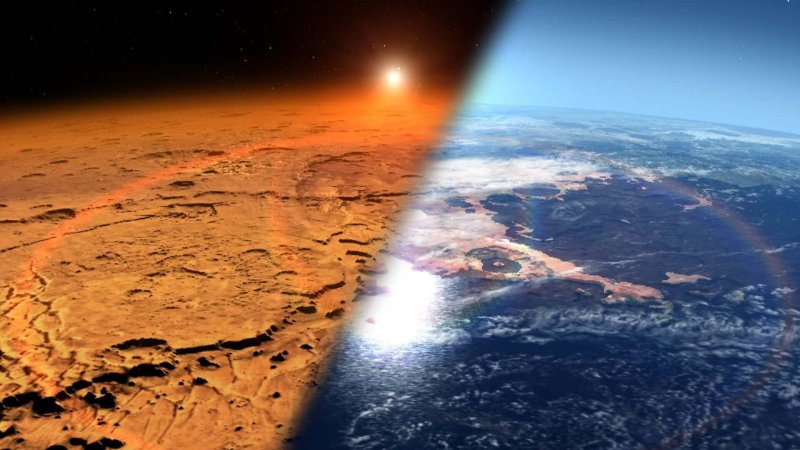Though the idea that life started on Mars before migrating on Earth sounds like some far-fetched sci-fi premise, many renowned scientists take the theory seriously. The general idea of life starting elsewhere in space before migrating here has a name, too: Panspermia. It’s the hypothesis that life exists elsewhere in the universe, and is distributed by asteroids and other space debris.
…
The evidence starts with how space debris moved around in the young solar system. Indeed, we have evidence of an exchange of rocks from Mars to Earth. Martian meteorites have been found in Antarctica and across the world — an estimated 159.
They also know the timeline: all modern life forms descend from a single-celled organism that lived about 3.9 billion years ago, only 200 million years after the first appearance of liquid water. In the grand scheme of the universe, that’s not that long.
And the last universal common ancestor was fairly complicated as far as organisms go. That leaves two possibilities, [geneticist Gary] Ruvkun says. “Either evolution to full-on modern genomes is really easy, or the reason you see it so fast was that we just ‘caught’ life, it didn’t actually start here.” He adds, “I like the idea that we just caught it and that’s why it’s so fast, but I’m an outlier.”































